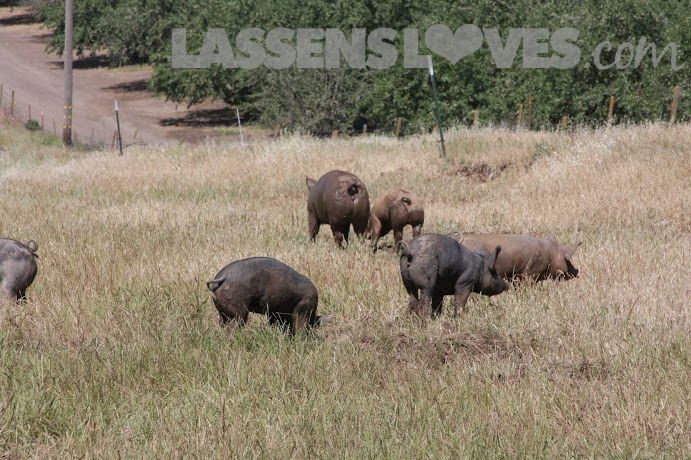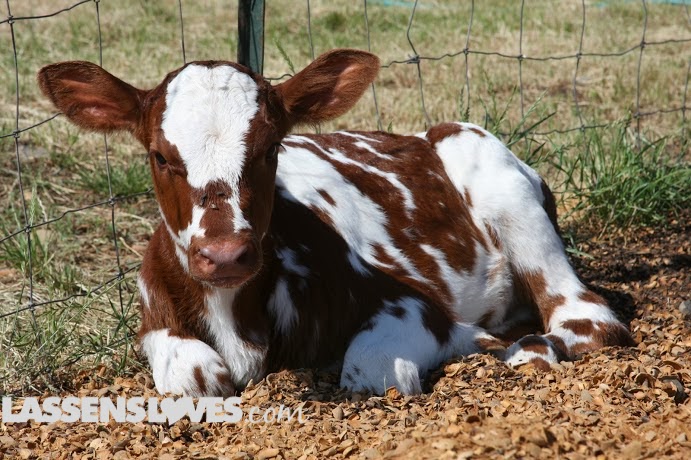It’s Good For You, Good for the Animals and Good for the Planet!
While many people are choosing to go vegan or vegetarian, many others enjoy eating meat. And if that includes you, how do you know the best meats for you, the animals, and the planet?
If you are confused by the many terms associated with this topic, you’re not alone. Here is a short explanation, but for more details, see this Mayo Clinic article.
These are USDA terms, and they mean something–
- Antibiotic Free–must provide documentation, but be careful with this one. Animals can have antibiotics in their lifetime, but just must have a period of time before slaughter so that there isn’t evidence of the antibiotic in their meat. Make sure the label says that the animal has never been administered antibiotics.
- Cage Free–Laying hens are not confined in cages, but typically are in barns or another enclosed area.
- Chemical Free–this label is not allowed on meats, so beware when you see it.
- Free Range or Free Roaming–This term is a USDA term (which means poultry are allowed to roam outdoors) but is not a standard term for other meats.
- Grain-Fed–The USDA regulates what grains are included in the diet of the animals labeled “Grain Fed.”
- Grass-Fed–means grass and forage are the feed source for the animals for their lifespan after weaning.
- Natural–This means the meat has no artificial flavorings, colorings, or preservatives, as well as no synthetic or artificial ingredients. They must be minimally processed, and the label must outline what is meant by “Natural.”
- Pasture Raised–This is part of the National Organic Program, and is an assurance that any meat so labeled comes from an animal that has had access to the outdoors year round.
These are Voluntary or Unregulated Terms–
- Certified Humane–This term is a voluntary label administered by Humane Farm Animal Care. They have a list of humane practices, including no antibiotics or hormones, and allowing the animals to engage in natural behaviors.
- Hormone Free–this term is not allowed on meat products, but beef can be labeled with “No Hormones Administered.”
- Naturally Raised–this term is one that the label must explain what is meant by the term.
- Vegetarian Fed–Generally used to suggest that the animal is provided with a healthier diet, including no animal by-products.
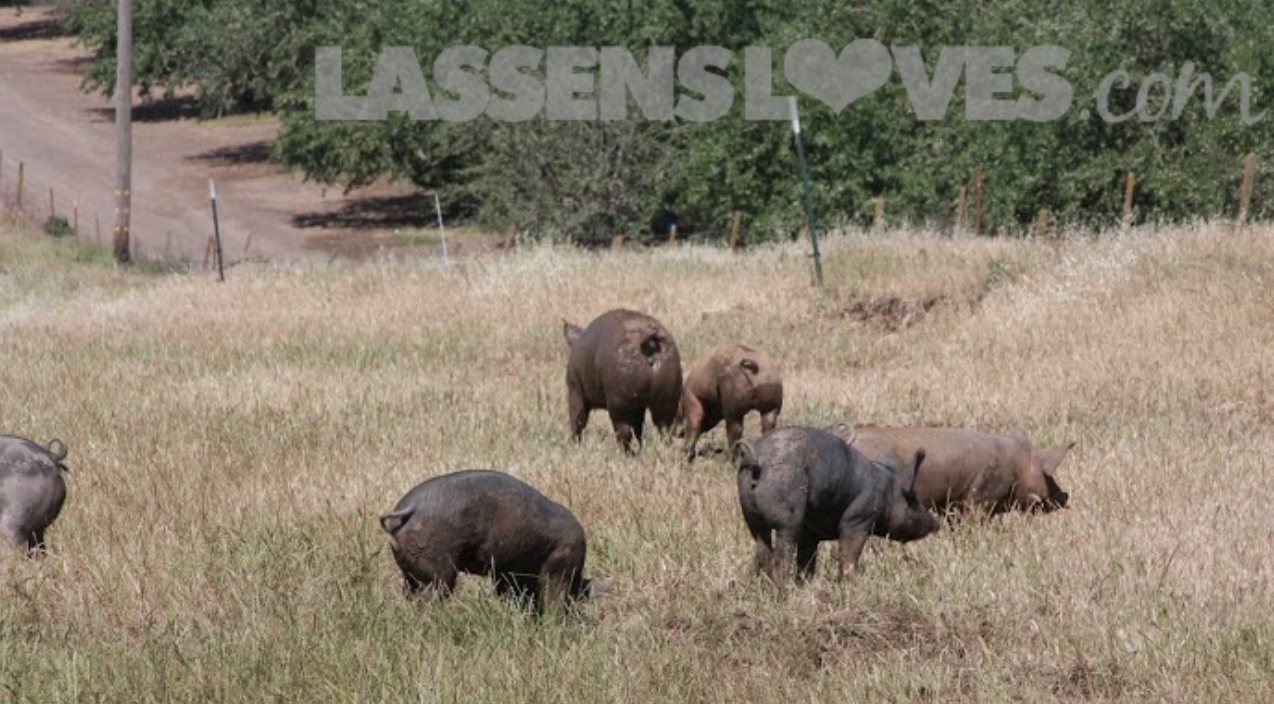
How are the Animals Raised?
Animals, including domesticated animals, have been living on pasture grasses for thousands of years. Their physiology has a wonderful system to turn those grasses into protein, which humans can consume and digest (we have a hard time digesting those same grasses!) In order to eat enough grasses to grow and thrive, the animals have to be free to roam a large range.
But in the last several decades, big production farms have changed the order of meat production. Typically today, the cattle, lambs, pigs and poultry are confined into small cages, and fed corn and other grains, and do not have the freedom to roam the fields. Often the beaks of chickens are clipped.
These animals, raised in confined spaces, produce high saturated-fat meat. They also are prone to diseases, since they are close to each other and get little if any fresh air or exercise. They are stuck living in filthy conditions, unlike this calf we saw at Burroughs Family Farm.
So Why Should We Eat Grass-fed, Free-Range Meats?
Number One–Better For You:
There is mouting evidence that grass-fed beef is much safer and better for your health than grain-fed beef. Grass-fed animals are much less likely to have diseases or e-coli than those in confined cages or lots. Grass-fed beef has less saturated fat, but more healthy Omega-3s and conjugated linoleic acid (CLA), a nutrient that is generally lacking in our western diet. CLA is associated with heart health and lowered cancer risk. Grass-fed, Free Range meats are also leaner. Meat produced on Factory Farms are generally full of antibiotics–they are used at an alarming rate. There is a great discussion on NPR’s On Point with Tom Ashbrook, which you can listen to here. Of course, we all know that over-use of antibiotics renders these amazing drugs much less effective, and encourages antibiotic-resistant strains of bacteria to thrive.
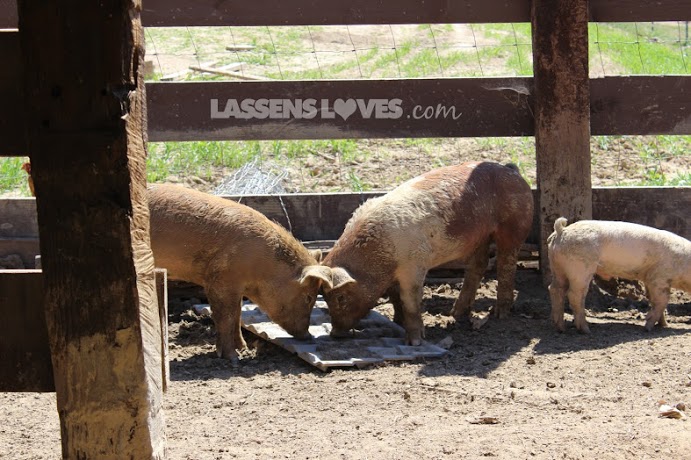 |
| These piglets enjoy rooting around at Highwood Farm |
Number Two–Better for the Animals:
Organic, Grass-fed, Free Range animals are allowed (even required!) to be outdoors, foraging for their food, engaging in natural behaviors like spreading their wings (for poultry) and rooting (for pigs) and walking over a large range (beef and lamb). Factory Farmed animals are packed into small cages or lots, often up to their knees in manure. Free Range animals are healthier, live longer and are less likely to need medical intervention (sounds like a great benefit for being a “free-range” human!) When we visited Burroughs Family Farm they told us that their milk cows had a productive life of ten years, where the industry average was only 2 1/2 years!
Also, animals that are fed diets that their bodies are not designed to eat struggle with much less fiber and much more starch. Because of their unatural diet they are susceptible to parasites and diseases, as well as e-coli. And this of course, makes their meat healthier for us.
Number Three–Better for the Planet:
The land and the soil is much healthier with grass-fed, free-range productions. Factory Farms produce mountains of waste, methane, pollution, and greenhouse-gas emissions. This article goes so far as to say that eating Free Range, Grass Fed meat can save the planet. It has some very interesting points, such as small farm, organic, free-range production is beneficial to the grasses and soils (fertilizing and eating a range of plants, which makes the soil healthier and eliminates weeds), and discourages pests and predators.
Factory Farms are environmentally very harmful. Pollution, run-off, groundwater contamination–those are just a few of the problems with raising thousands of animals in small spaces. This Time Magazine article (from 2010) exposes many of those problems.
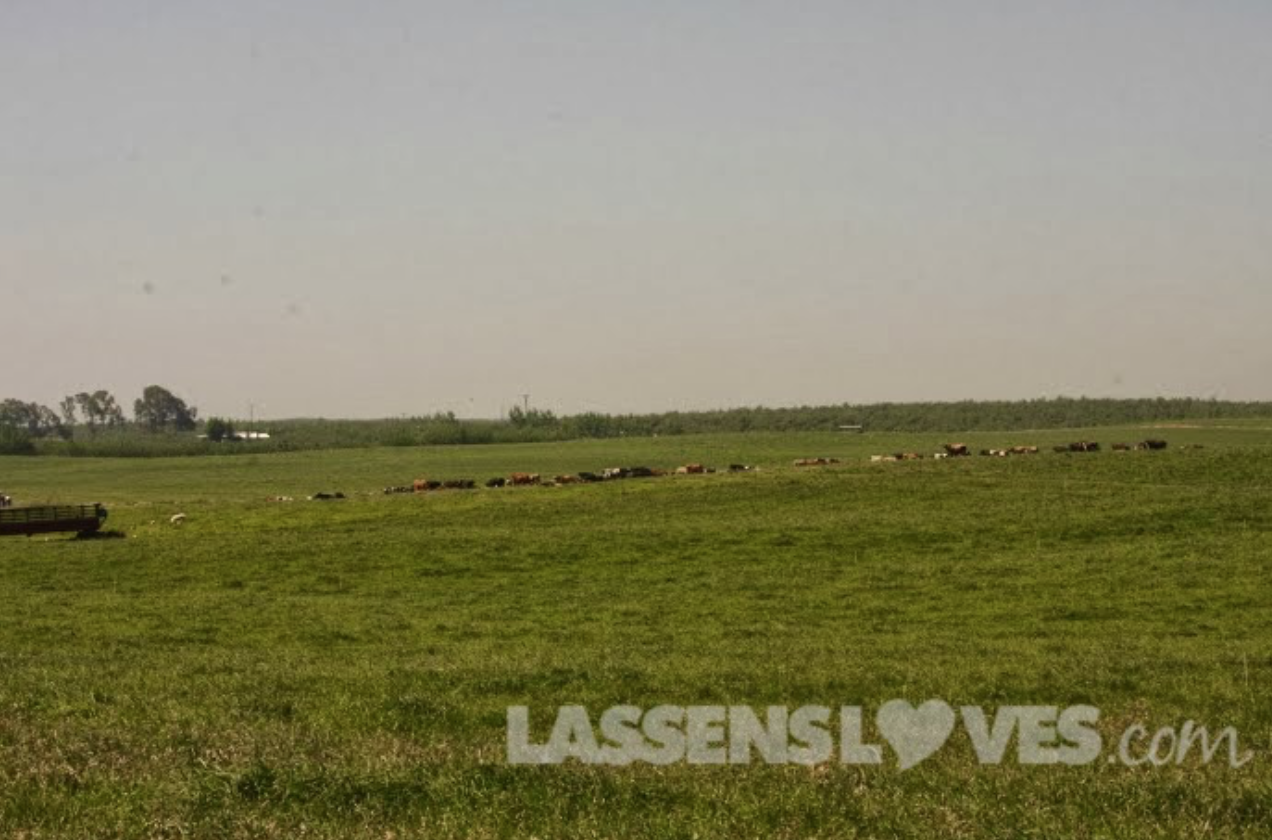
How Hard is it to Change to Meat that is Better for Me, the Animals, and the Planet?
Not hard at all. Lassen’s carries a wide selection of all kinds of meats that are organic, grass-fed, free range, humanely treated meats. We always have something on sale, and you’ll find that the meat is so delicious and tender. If you have any questions about the meats that we carry, our friendly meat department can help you.
If you haven’t tried our delicious meats, the first barbecue of the summer would be a good time to give them a try! We have everything from ground beef to turkey sausages.
This article has more details on why eating grass-fed meat is beneficial.
Have a great summer, and enjoy all of the healthy foods and products that we carry!
love,
Lassen’s
